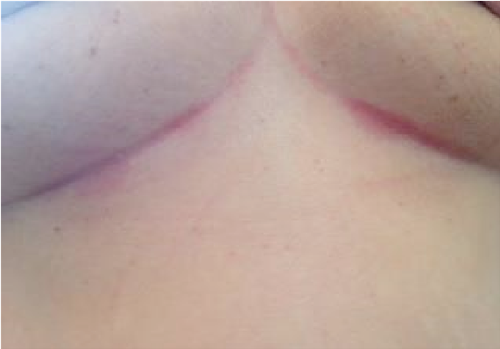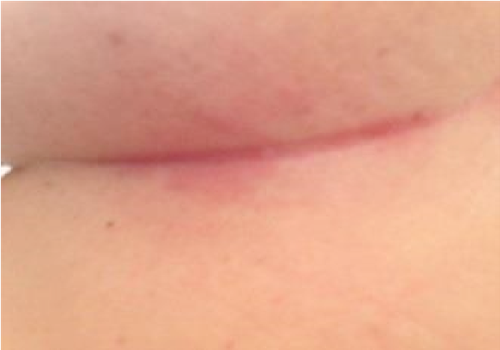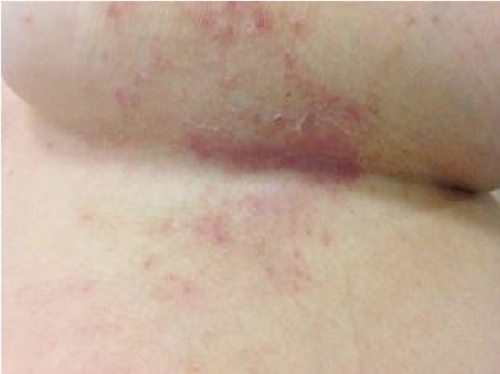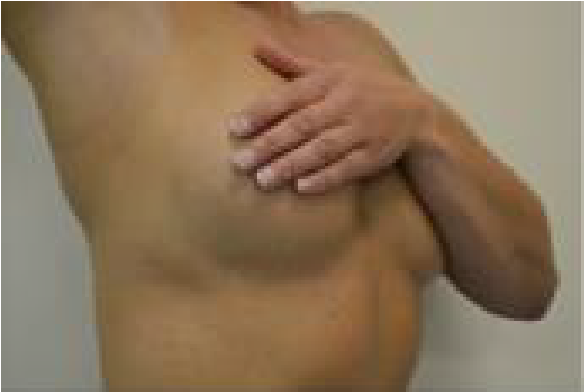Understanding under-breast soreness (Candida Intertrigo)
This page gives you information about under-breast soreness (intertrigo) including how the condition can be treated and managed.
What is under-breast soreness?

Under-breast soreness (UBS), commonly known as intertrigo, is a medical condition which usually affects women who are larger breasted or very sporty. Intertrigo is an infection caused by the yeast condition ‘Candida albicans’ which comes from the same family of yeast infections that cause ‘athlete’s foot’. Intertrigo can easily be treated.
Causes

The main causes of intertrigo are moisture (such as sweating), heat and ‘skin to skin’ rubbing. A warm environment encourages infection by yeast, fungus or bacteria. The growth of yeast which appears as a rash in the skin fold under the breast. If untreated, it may worsen, become infected and possibly spread to other parts of the body. In some cases, it can lead to a creamy coloured discharge with a pungent (strong) smell.
Diabetes can also affect the skin, making it more prone to fungal and bacterial infections.
Symptoms of intertrigo

Symptoms of intertrigo include:
- Red rash
- Soreness/discomfort
- Cracked/split skin
- Prickling sensation on the skin
- Itchy weeping skin
These symptoms can range from mild or moderate, to severe.
Treatment
The most effective treatment is:
- Wash the area regularly and pat dry rather than rubbing.
- Wear a good supportive bra to reduce ‘skin to skin’ rubbing. Cotton is more effective than nylon, which is known to make the condition worse.
- Avoid sharing flannels or towels to prevent spreading any infection.
- If the skin is red, sore and itchy, apply an anti-fungal* cream or powder.
- If the skin is very red, inflamed or sore, apply a hydrocortisone* cream
- Once the infection has cleared, it may be advisable to use a barrier cream to help stop the infection returning.
- *Hydrocortisone, anti-fungal creams/powders and barrier creams are all available over the counter. If you are uncertain of which treatment is most suitable, please ask the pharmacist for advice.
If none of the above treatments help or your symptoms worsen, please make an appointment to see your GP.

Further information
MedicineNet
Website: www.medicinenet.com/intertrigo/article.htm
Acknowledgment
Adapted from the research undertaken by Marilyn O’Connell, Assistant Practitioner in Breast Screening, King’s Lynn.
